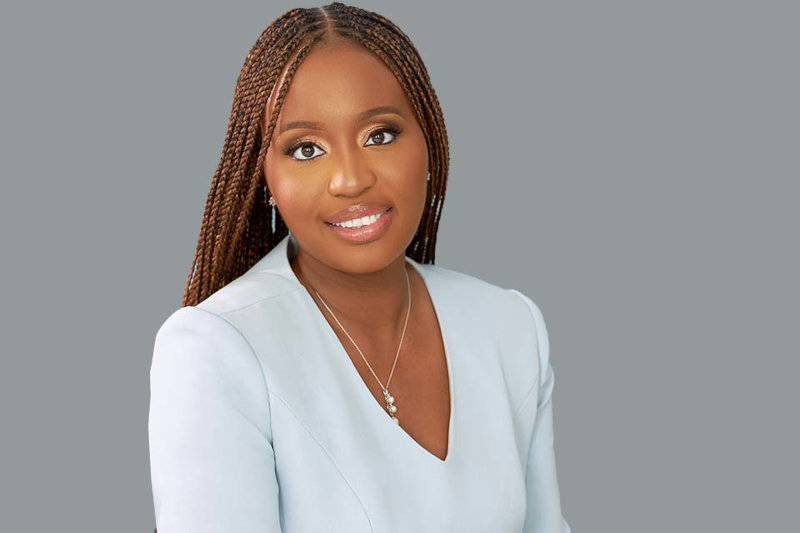
Adesuwa Okunbo Rhodes
Interview with Adesuwa Okunbo Rhodes
FOUNDER and MANAGING PARTNER, ARUWA CAPITAL MANAGEMENT
Lives in: Nigeria
Adesuwa Okunbo Rhodes launched Lagos-based Aruwa Capital Management to tackle a significant funding gap for small businesses in Nigeria and Ghana, particularly those led by women. About six years on, the private equity firm has completed more than a dozen investments.
How we made it in Africa editor-in-chief Jaco Maritz spoke to her about building and running an investment firm in West Africa.
Topics discussed during the interview include:
- What it takes to launch and grow a private equity firm in West Africa
- One of Aruwa Capital’s most successful investments so far
- Deals she passed on but now wishes she had backed
- How private equity firms make money
- The toughest parts of running an investment firm
Watch the full interview below: (only available on howwemadeitinafrica.com)
Interview summary
Adesuwa Okunbo Rhodes founded Aruwa Capital Management in 2019 after spotting a large funding gap for small and medium-sized businesses in Nigeria and Ghana. The shortfall, estimated at around $150 billion, was particularly acute for female entrepreneurs. Fewer than 2% of investment dollars in Africa were going to women-led businesses, she says – a gap she set out to address.
Setting up the firm meant starting from scratch. Before Aruwa could back its first company, Okunbo Rhodes had to convince investors to commit capital to its first fund and build a team to execute the strategy. Unlike established private equity firms, she had no management fees to cover operating costs as no capital had yet been raised. She had to fund salaries and expenses herself until investors came on board. Eventually, Aruwa closed its debut fund at over $20 million, attracting support from Visa Foundation, Mastercard Foundation’s Africa Growth Fund and several family offices across Africa, Europe and the US.
In April this year, the firm said it had already raised $35 million for its second vehicle, Aruwa Capital Fund II, which Okunbo Rhodes hopes to close at about $50 million.
***
One of Aruwa’s most successful investments from its first fund is OmniRetail, a platform that connects manufacturers and distributors of fast-moving consumer goods to informal shopkeepers, who account for more than 90% of retail sales in Nigeria. The company also provides digital payment solutions and access to credit. For example, a small shop in Lagos can order stock directly through the OmniRetail app, receive deliveries within 48 hours, and use buy-now-pay-later options to manage cash flow.
“It’s a business that we remain very, very excited about in terms of the growth trajectory and also the way that they’ve been able to create this ecosystem that is really enabling the informal economy to really scale and have access to finance,” says Okunbo Rhodes.
(Read more on OmniRetail: Entrepreneur spots opportunity in Nigeria’s informal retail market)
Aruwa also invested in Fastizers, a Nigerian snack food company founded in 2010 by Debby Lawson, who started the business with just 960 naira – about 60 US cents at today’s exchange rate. It has since grown into a multimillion-dollar operation selling cookies, biscuits, chin-chin – a popular fried snack in West Africa – and more recently bread. Despite high inflation and a weak currency squeezing Nigerian consumers, Okunbo Rhodes highlights the company’s wide product mix and established distribution network as strengths.
(Watch our full interview with Debby Lawson, founder and COO of Fastizers: Nigeria: Entrepreneur turns 960 naira (less than $1) into national food business)
Healthcare is another area of focus. Aruwa backed MDaaS Global, which began in 2016 importing refurbished medical diagnostic equipment before pivoting to run standalone diagnostic centres under the BeaconHealth Diagnostics brand. The company now has numerous centres across Nigeria and has expanded into Cameroon.
“The unit economics of these centres are just phenomenal,” says Okunbo Rhodes. “You set up a centre and it breaks even in a short space of time. So we think that if you’re able to provide affordable, high-quality healthcare services, like diagnostics, in peri-urban areas – so outside the big cities – you are really able to position yourself in an industry with limited competition.”
(Read our full interview with Oluwasoga Oni, CEO of MDaas: The entrepreneur who saw a gap in Nigeria’s healthcare industry)
From its second fund, Aruwa has already invested $1.5 million in Yikodeen, a Nigerian manufacturer of safety and industrial footwear. Founded in 2016, Yikodeen is addressing a gap in Nigeria’s safety footwear industry, traditionally dominated by imports. Licensed to supply safety footwear to Nigeria’s oil and gas industry, Yikodeen has capitalised on the growing enforcement of local content regulations and the increasing demand for personal protective equipment in critical sectors.
There have, however, been a few deals that crossed Okunbo Rhodes’ desk which she declined but later wished she had pursued. One was Moove, the Uber-backed vehicle financing company, reportedly in talks to raise $300 million in a funding round that could value it at over $1 billion. Another was Moniepoint, the fintech firm that last year became Africa’s newest unicorn after securing $110 million from investors.
***
Fundraising remains one of the toughest aspects of running a private equity firm, says Okunbo Rhodes. “Fundraising is not for the faint-hearted. Getting global institutions to back you, back your firm, back your vision, back your strategy – it takes time, it takes years of building trust, years of communication, years of follow-ups.”
Yet she somehow enjoys it. “When you finally get them, it’s very, very fulfilling.”
She describes her job as a constant balancing act. “You’re fundraising for one fund, you’re deploying another fund, you’re exiting another fund, you’re hiring, you’re reporting, you’re doing investor relations,” she says. “Sometimes I feel there aren’t enough hours in the day. Sometimes I feel like I need three of me.”



